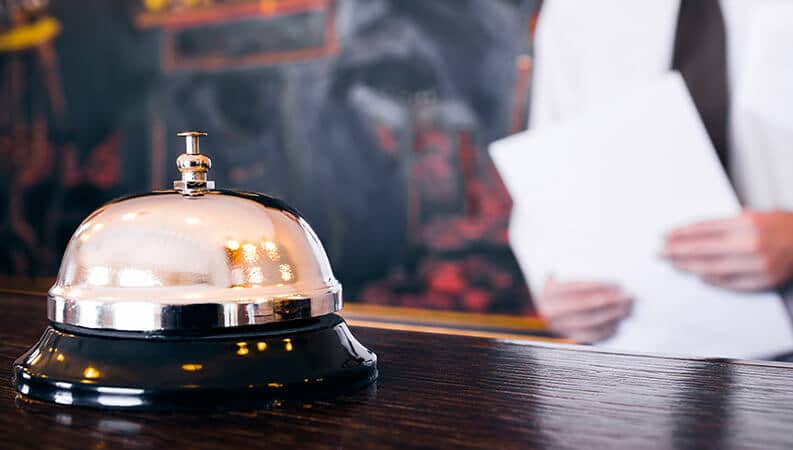In 2017, the challenges facing the hospitality industry may not necessarily be new but they are certainly pervasive. Fear of being left behind amid the ubiquitous Airbnb’s along with questions about how to continue making money in a market where supply continues to rise and prices are seemingly flat, weigh heavily on the industry.
Many hotel providers are looking for new and creative ways to compete including plans to renovate facilities and bring a more modern and aesthetic appeal to their properties. The search for ways to cut internal overhead costs is also a constant struggle in an industry that is already expensive to manage considering market fluctuations that inevitably affect demand.
Competition from other hotels is also tightly linked with technology and the offerings available to guests who are increasingly tapped-in to their mobile devices for both business and pleasure. A high-speed internet connection for guests is just the beginning of meeting technology demands in the industry. The process behind the scenes is also increasingly becoming automated in response to alarming levels of check fraud as reported by the Association for Financial Professionals in their 2017 AFP Payments Fraud and Control Survey along with unnecessary and often unseen costs associated with antiquated payment processes.
So how do hotels compete in the modern market while also creating additional revenue? One answer is by automating Accounts Payable (AP) with virtual card capabilities that let them earn money back from their payables process. The industry dictates that every dollar spent must be a productive one. What better way to ensure that dollar-productivity than realizing a guaranteed rebate dictated by a percentage of the hotel’s spend?
You must operate more efficiently. It’s not enough to renovate the face of the property. An overhaul of internal processes and willingness to adapt to evolving technology will be essential for hotels that intend to stay relevant in the industry.
When approached with the idea of creating AP automation, many hotel providers fear another big expense looming around the corner, which has been their experience when tackling new technology implementations in the past. There is also a perceived opportunity cost associated with re-imagining an entire process that requires retraining staff.
The reason we are working with some of the largest hotel brands in the world is because we recognized the inefficiencies of the AP process and we created a solution that allows us to meet the AP team where they’re at with no big expenses and no reinvention of the current process.
In fact, we’ve made it as simple as sending an ERP file with a list of vendors that need to be paid. After that, we call the vendors and get them on board to receive payments electronically and we link the ERP file with our AP automation platform. It’s not a hard sell for vendors when they understand that they’re going to get paid faster and more securely. It also helps that we have established relationships with an impressive number of large hotel vendors and they are already working with us through other accounts.
AP team training on the platform is simple and the entire process can be completed with just a few phone calls.
The costs associated with using paper checks is substantial and the process is out-of-date, especially when considering the vulnerability to fraud that is created. With the globalVCard platform, hotels not only eliminate the costs of printing and processing checks, they also virtually eliminate the opportunity for scams, and simultaneously actualize additional revenue created through rebates delivered each time a payment is processed electronically.
We’re in the business of building vendor relationships and award-winning technology so that hotel providers and their employees can focus on providing elite customer service that sets them apart in the market. And to that end, we also provide automated mobile payment solutions for business travelers which more and more hotels are embracing as they navigate the dominant shift that technology is pushing forward.



